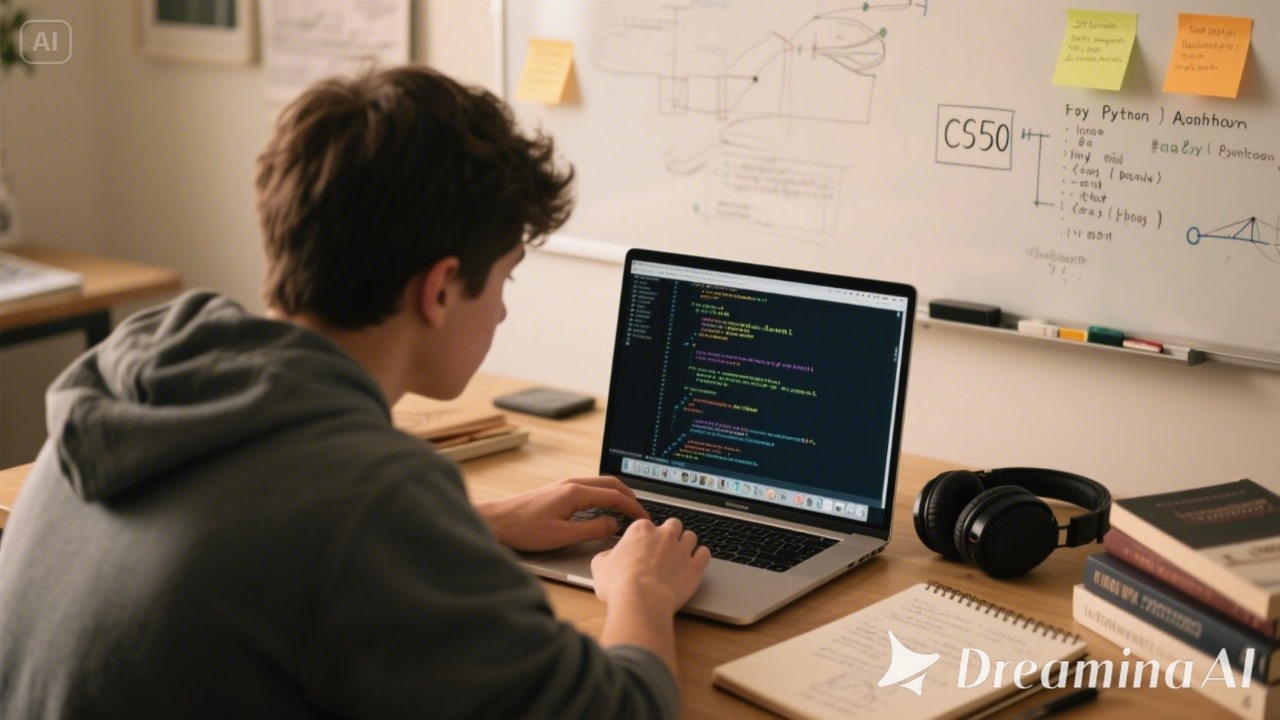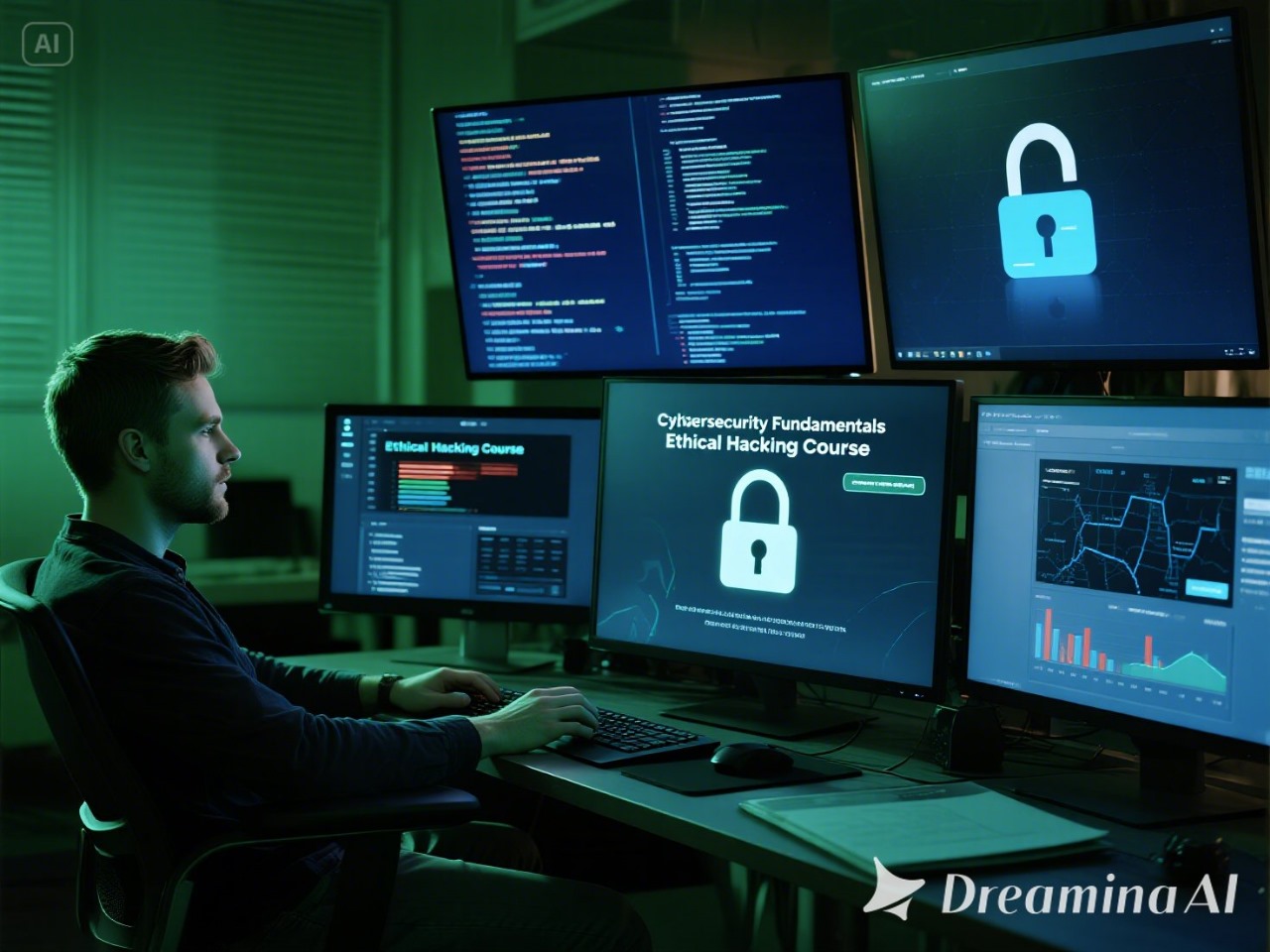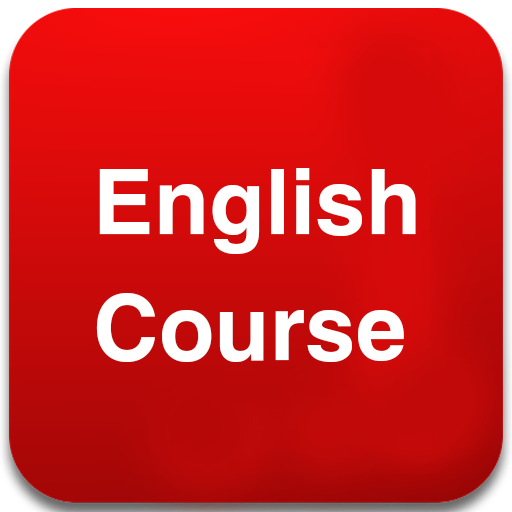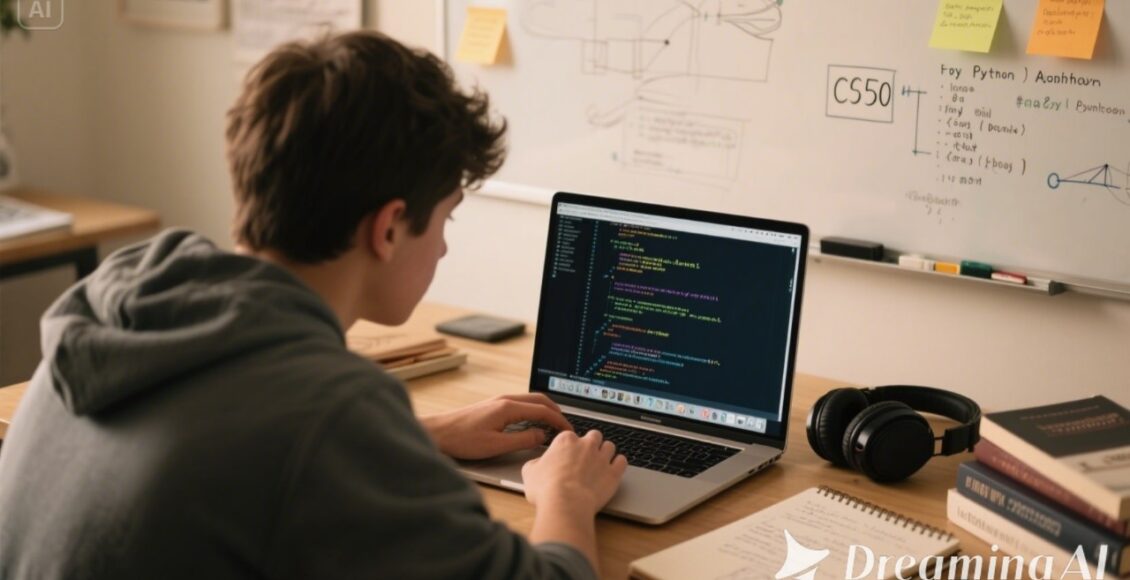اتعلم برمجة من الصفر أكتر من 20 كورس مجاني من أكبر المنصات العالمية
اتعلم برمجة من الصفر أكتر من 20 كورس مجاني من أكبر المنصات العالمية
Learn programming from scratch with more than 20 free courses from the largest global platforms.
Do you dream of learning programming from scratch but don’t know where to start? Here are more than 20 free courses offered by global platforms such as Udemy, Coursera, edX, and others. Everything you need to begin your programming journey is here.

Why learn programming in 2026?
لأن ده مش بس مجال شغل دي طريقة تفكير بتخليك تحل مشاكل وتفكر بطريقة منظمة كمان مش هتدفع كتير كل حاجة تقريبا ببلاش أو بربع تمن الكورسات المدفوعة مرونة تتعلم وقت ما تحب وبالسرعة اللي تريحك تخصص في اللي يهمك من غير مواد مملة مالهاش لازمة فرص كبيرة ممكن كورس واحد من MIT أو Google يفتحلك باب شغل في شركة عالمية

Free programming courses.
How do I start programming?
Online work for beginners.
Programming for beginners.
The best platforms offering free programming courses
Stage 1: Theoretical Basics
ابدأ من الصفر اعرف يعني إيه كمبيوتر و بيشتغل إزاي وإيه الفرق بين الهاردوير والبرمجيات و
اتعلم كمان يعني إيه خوارزميات وهياكل بيانات.
Useful resources :
- Harvard CS50 Course (Translated into Arabic)
- Crash Course Computer Science YouTube Channel
- كتاب Computer Science Illuminated
Stage 2: Learn a programming language
Choose a language and start learning it. The most suitable languages for beginners :
Python ( Easy and Fun )
JavaScript ( if you are interested in the web )
C++ or Java ( if you want a strong academic foundation )
Learn how to write code and create simple projects like a calculator or a to-do list.
Excellent sites :
freeCodeCamp
The Odin Project
Codecademy

Steps to learn programming.
Teaching programming to beginners.
Programming jobs.
Learn Python
CS50 in Arabic.
Harvard University courses.
Learn website programming.
Stage 3: Data Structures and Algorithms
دي الأساس اللي بيخليك تفكر صح وتحل مشاكل زي المحترفين.
اتعلم عن:
- Arrays, Linked Lists, Trees
- Sorting & Searching
- Big-O notation
sources :
- Grokking Algorithms book
- LeetCode Exercise Solutions
- DSA courses on Coursera
المرحلة 4: مفاهيم متقدمة (زي اللي بيتعلموها في الكلية)
I’m getting serious now like a second or third year computer science student .
Operating systems :
- Processes
- Memory and File Systems
Book : Tanenbaum – Operating Systems
Networks :
- How does the Internet work?
- DNS – TCP/IP
كورس Udacity – Computer Networking
Databases :
- SQL وNoSQL
- Table design
- CRUD Commands Stanford Databases
Course on edX
Stage 5: Projects and practical application
من غير مشاريع كل اللي اتعلمته بيضيع ابدأ اشتغل على:
- Web application with React or Django
- A simple Python program solves a real problem.
- Create a personal website and showcase your work on GitHub.
Project ideas :
- Task management app
- A simple game like Tic Tac Toe
- A program to calculate your expenses
Stage 6: Ready for the job market or specialization
If you intend to work :
- Learn Git and GitHub
- Prepare yourself for the question “Tell me about your project “
- Study interview questions from HackerRank and InterviewBit
If you intend to specialize :
- Want artificial intelligence? Focus on Python and Machine Learning
- Cybersecurity? Learn networks and systems
- Data Science Focused on Python , Pandas , and SQL
Many questions are running through your mind?
- هل ممكن أتعلم كل ده لوحدي؟
آه طبعًا فيه آلاف اتعلموا كده واشتغلوا في شركات كبيرة. - Do I have to be good at English?
English will be very beneficial to you, but you can start with Arabic sources and with time your language will improve automatically . - Do you need a powerful computer?
No, any average laptop is more than enough to get started .

To study programming step by step, starting from the basics and ending with advanced practical skills.
The first stage:
- Introduction to Computer Science
انتظر 8 ثانية لظهور الرابطStart your journey by understanding the basics of the field and programming concepts in an academic and simplified way .
The second stage:
Core Topics Basic
Programming :
Start by understanding programming from scratch and progress to designing complex software .
- انتظر 8 ثانية لظهور الرابطHow to Code – Simple Data
- انتظر 8 ثانية لظهور الرابطHow to Code – Complex Data
- انتظر 8 ثانية لظهور الرابطSoftware Construction – Data Abstraction
- انتظر 8 ثانية لظهور الرابطSoftware Construction – Object-Oriented Design
- انتظر 8 ثانية لظهور الرابطProgramming Languages – A, B, C
Basic mathematics :
Mathematics is the heart of computer science. These courses cover the most important topics you will need .
- انتظر 8 ثانية لظهور الرابطEssence of Linear Algebra – YouTube Playlist
- انتظر 8 ثانية لظهور الرابطLinear Algebra – Foundations to Frontiers
- انتظر 8 ثانية لظهور الرابطCalculus One
- انتظر 8 ثانية لظهور الرابطCalculus Two: Sequences and Series
- انتظر 8 ثانية لظهور الرابطMathematics for Computer Science – MIT
Basic computer systems :
Understand how a computer works from the inside, starting with bits and building the entire computer. Bits are the smallest unit of information in a computer, consisting of a or a 1. The computer processes everything in the form of a series of bits .
- انتظر 8 ثانية لظهور الرابطBuild a Modern Computer – From Nand to Tetris Part I & II
- انتظر 8 ثانية لظهور الرابطIntroduction to Computer Networking – Stanford
- انتظر 8 ثانية لظهور الرابطIntroduction to Computer Networking – Stanford
- انتظر 8 ثانية لظهور الرابطHack the Kernel – Operating Systems
Basic theories :
Learn algorithms and computational thinking .
- انتظر 8 ثانية لظهور الرابطAlgorithms: Design and Analysis Part I & II – Stanford
Basic applications :
Enter the world of practical application of computer science .
- انتظر 8 ثانية لظهور الرابطDatabases
- انتظر 8 ثانية لظهور الرابطMachine Learning – Andrew Ng
- انتظر 8 ثانية لظهور الرابطComputer Graphics
- انتظر 8 ثانية لظهور الرابطCryptography I
- انتظر 8 ثانية لظهور الرابطSoftware Engineering: Introduction
- انتظر 8 ثانية لظهور الرابطCapstone Project – Software Development
Stage 3: Advanced Topics
Advanced programming :
Develop your skills in program debugging, parallel programming, and compiler building .
- انتظر 8 ثانية لظهور الرابطCompilers – Stanford
- انتظر 8 ثانية لظهور الرابطSoftware Debugging – Udacity
- انتظر 8 ثانية لظهور الرابطSoftware Testing – Udacity
- انتظر 8 ثانية لظهور الرابطParallel Programming
- انتظر 8 ثانية لظهور الرابطSoftware Architecture & Design
Advanced Mathematics :
Complete mathematical concepts more accurately, especially probability and multiple differentiation .
- انتظر 8 ثانية لظهور الرابطMultivariable Calculus – MIT
- انتظر 8 ثانية لظهور الرابطIntroduction to Probability
Advanced systems :
From distributed systems to computer architecture .
- انتظر 8 ثانية لظهور الرابطReliable Distributed Systems (Part 1 & 2)
- انتظر 8 ثانية لظهور الرابطElectricity and Magnetism (Part 1 & 2)
- انتظر 8 ثانية لظهور الرابطComputation Structures 1, 2, 3 – MIT
Advanced theory :
Enter the world of logic, mathematical models, and game theory .
- انتظر 8 ثانية لظهور الرابطIntroduction to Logic
- انتظر 8 ثانية لظهور الرابطAutomata Theory – Stanford
- انتظر 8 ثانية لظهور الرابطComputational Geometry
- انتظر 8 ثانية لظهور الرابطFormal Concept Analysis
- انتظر 8 ثانية لظهور الرابطGame Theory
Advanced applications :
Start specializing in new fields like AI, data, and web development .
- انتظر 8 ثانية لظهور الرابطRobotics – Specialization
- انتظر 8 ثانية لظهور الرابطData Mining
- انتظر 8 ثانية لظهور الرابطBig Data
- انتظر 8 ثانية لظهور الرابطInternet of Things
- انتظر 8 ثانية لظهور الرابطCloud Computing
- انتظر 8 ثانية لظهور الرابطFull Stack Web Development
- انتظر 8 ثانية لظهور الرابطData Science – Johns Hopkins
- انتظر 8 ثانية لظهور الرابطFunctional Programming in Scala
Stage Four: Final Project
Now that you’ve come a long way in learning, it’s time to apply. You can build your own project or join an open source project.
- انتظر 8 ثانية لظهور الرابطCodeTriage – Participate in developing tools and libraries
انتظر 8 ثانية لظهور الرابطFirst Timers Only – Projects Suitable for Beginners
Tips for staying consistent and not getting distracted
If you keep waiting for the right time, you will never start. Come on, what are you waiting for? Start today, even if it is just one hour a day. Daily accumulation is the secret to success. Remember, stick to a clear plan. Allocate a fixed time every day. Build projects and share them. Enjoy the journey. You don’t need university. You need passion and continuity.

